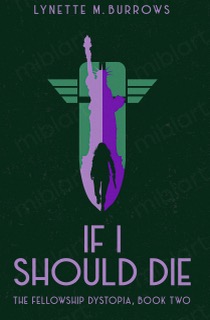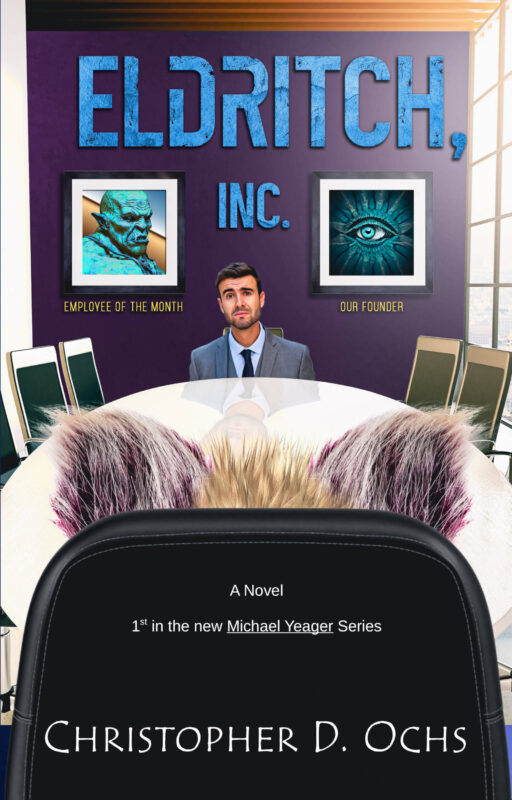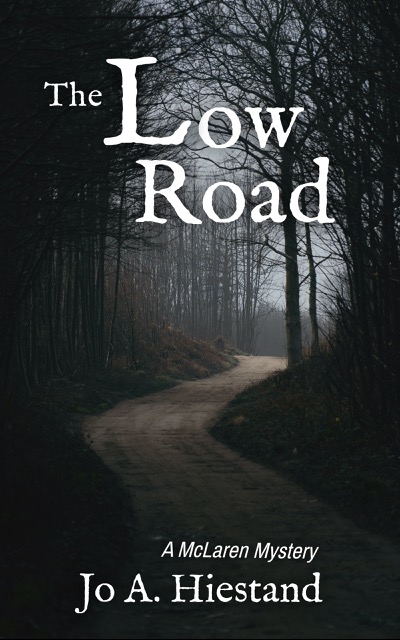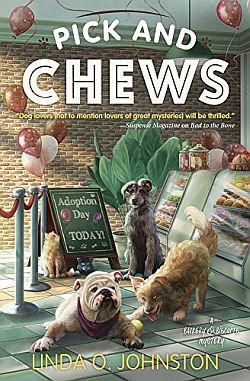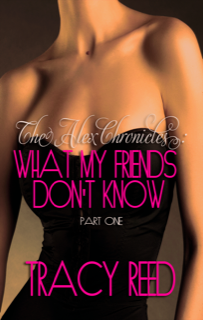It’s Worth It
February 9, 2008 by A Slice of Orange in category Archives tagged as It's Worth ItMAKING LISTS
by Kitty Bucholtz
When I was thinking about my column this month, I couldn’t think of one single thing to write about. Some days I’m so happy with life, that niggling guilt that’s always in the back of my mind when I’m not working – well, it just goes away! And today, I couldn’t help but list all the things I’ve spent time on this week – even when I thought I should’ve been writing – that added some unexpected happiness.
Choir practice, even though I thought I was too busy to go
Talking to strangers, even when I was busy
Calling my mom, even though I was busy
Enjoying a few chapters of reading, even when I should’ve been writing
Cuddling and watching TV with my honey, even if I should’ve been working
Thanking God for future blessings, even though I can’t see them yet
Supporting a friend by walking the picket line with her, even when I’m busy
Taking a moment to enjoy the stars, even when I’m tired
The joy of telling a story, even if only to myself today
I’m sure this list isn’t complete, but you get the picture. And the thing I noticed was that my writing energy improved after each of these things! But you know, even if it hadn’t helped my writing, some things in life are just worth it.

Kitty Bucholtz writes romantic comedies because, well, she lives one! She wrote her first book in the NBC cafeteria, the second snowed in at a Reno hotel, and the third from a tiny apartment in Sydney. Even though she loves talking about, writing about, and teaching about writing, she’s pretty sure she knows at least three people who aren’t writers.
Things That Make Me Go Mmmruh . . .
February 7, 2008 by A Slice of Orange in category Archives tagged as Things That Make Me Go Mmmruhby Geralyn Ruane
Every few years or so I dust off Touch Not the Cat by Mary Stewart and reread it, just so I can get to page 227, when Bryony runs out into the moonlit orchard and – well, I won’t tell you – but it’s the best part of the story.
And I’ll bet that everyone knows the feeling I’m talking about – reading a dog-eared book or watching a favorite movie just to get to that scene that makes you go mmmruh! We don’t skip ahead to the incandescent chapter, or fast forward to the culminating scene, because without the build up, the climax is a let down. Captain Wentworth’s striding in and asking for Anne in front of everyone wouldn’t grab you by the guts and never let go without that preceding heartbreak, betrayal, belittling and loneliness.
Build-up, climax, bliss – it’s the pulse of romance . . . and sports.
I watch sports to feel the thrill when that 3-point shot at the buzzer wins the game, when that amazing catch in the end zone defies physics, when that guy nobody ever heard of knocks out an invincible champion, when that bunch of college kids ices a communist powerhouse.
A romance writing friend once commented, “Geralyn, that’s why there are highlights.â€
But come on! Who wants to read a romance that catalogs scene after scene of the heroine and her man having great sex because they are just so in love and their lives couldn’t be more perfect? Highlight reels provide no more than superficial thrills. But when you know what’s at stake in the contest, and when you sweat as you watch the fight, the pay-off is visceral. Mmmruh . . .
Romance, like sports, is an aching quest for the moment of perfect climax.
Why else was this Sunday’s Super Bowl XLII the most watched thing ever on TV, second only to the final episode of M*A*S*H? Are there so many Patriots and Giants fans out there? Maybe, but I suspect the game’s popularity was due to not just the foreplay, but more significantly, the guarantee of an explosive climax.
As Sports Illustrated so succinctly says, “The Super Bowl would be either a CORONATION or a COLOSSAL UPSET.” In one corner is a smug, undefeated, championship team who wants to make history by becoming the only NFL franchise to go 19-0 in a season. In the other corner is a scrappy wild card team who had unexpectedly beaten redoubtable play-offs rivals to become the second-worse franchise ever to make it to the Super Bowl. New York’s Plaxico Burress predicts a 23-17 Giants win. Tom Brady laughs at a press conference at the notion of his Patriots scoring a mere 17 points. Can the New York defense stop the locomotion of the New England offense? Tom Brady looms infallible – can Eli Manning, league leader in interceptions thrown during the regular season, step up?
As it turns out, Plaxico is wrong. The Giants hold the Patriots to 14 points, not 17, thanks to a defense that sacks Tom Brady 5 times and breaks up the Hail Mary. And in the last 2 minutes of the game, Patriots on top by 4, young Eli steps up. Courtesy of an offensive line that wouldn’t quit, he breaks out of a near-sack to throw to third-string receiver David Tyree who makes one of the most amazing catches in NFL history. Seriously, who catches a football with his head? A final pass to Plaxico in the end zone, and those scrappy Giants win the Super Bowl.
It was the perfect climax.

Geralyn Ruane’s new favorite numbers are 18 and 1. She co-hosts the radio show Better Times After 50 on AdviceRadio.com when she’s not drinking chocolate milk straight from the spoon or writing humorous women’s fiction. Her short story “Jane Austen Meets the New York Giants†is published in the New York Times Bestselling anthology The Right Words at the Right Time Volume 2.
Multiple Hats on the Same Day
February 6, 2008 by Linda O. Johnston in category Pets, Romance & Lots of Suspense by Linda O. Johnston tagged as Berkley Prime Crime, Linda O. Johnston, Silhouette NocturneOkay, so much for my keeping the New Year’s resolution I proposed in my last Slice of Orange blog–becoming more efficient in my writing. Where did the last month go?
It may have passed so fast for me because I was on a delightful cruise to Australia and New Zealand for almost 3 weeks. I think. I lost track of time because of crossing the International Dateline a couple of times.
The great thing was that, while traveling, I got word that I’d sold my second Silhouette Nocturne! The not quite so great thing is that the sale was on condition that I make some significant changes to that Nocturne proposal, which I really didn’t mind since that’s sometimes part of the process. The only problem was that I’m on a March 15 deadline for my 7th Kendra Ballantyne, Pet-Sitter mystery, and didn’t accomplish as much as I’d hoped on the cruise (big surprise!)–although my 2 talks on writing went well.
Fortunately, my Silhouette editor was quite accommodating. I was able to schedule a date for providing the proposal revisions several weeks after my mystery manuscript was due. But I still needed to prepare for a brainstorming telephone call with my editor that occurred soon after I got back. That meant switching writing hats from light mystery to dark paranormal romance each day during several succeeding days as I thought through the Nocturne changes yet continued to write my mystery. Not to mention going to my downtown LA law job each weekday morning. Yikes!
Well, it really wasn’t that bad. As I’ve said often before, the ability to change between genres is something I feel strongly about. My mysteries generally contain romance, and my romances contain mystery, or at least suspense. And changing from fiction writing to contract drafting isn’t much of a stretch. In any event, I met the challenge. My editor seemed to like the revised direction I proposed for the new Nocturne. And I’m making progress with the draft of my new mystery.
How about you? How many hats do you wear on one day?
Linda O. Johnston
www.LindaOJohnston.com
Linda O. Johnston is the author of 14 romance novels as well as the Kendra Ballantyne, Pet-Sitter mystery series from Berkley Prime Crime.
WHY I LOVE TO DRIVE
February 6, 2008 by A Slice of Orange in category ArchivesOCC BLOG 2-5-08
by Diane Pershing
You’re going to think I’m nuts, but I actually enjoy driving, even in L.A. When the freeways are crowded and it’s rush hour and it’s raining and when everyone around me is irritated and impatient and rude, I just adore being cocooned in my car. Why? Because I always have an audio book going. Always. I have been doing this for years, since before CDs. I’ve listened to hundreds of books—maybe even a thousand by now—on long trips up north to see my daughter, southeast to Rancho Mirage to visit my best friend, and various short and not-so short hops, such as the one from my home in Silver Lake to the Brea Community Center.
I feel warm and toasty and happy when I listen. I think this must be the way my parents’ generation felt, gathered around the old radio for that week’s program in a long-running soap opera, or a play, or the latest “Lone Ranger†episode. There is something about being read to that is comforting, isn’t there. Not only because of childhood bedtime stories read to us, but because we tend to listen more intently than we do when there is also a distracting visual component. This concentrated listening doesn’t take away from my driving, the way talking on a cell phone has in the past (I don’t do that anymore—too many near-death experiences for comfort).
And so the time flies and my mind gets new input and I listen to other writers’ words and soak them up into my soul. Traffic? Not my problem.I read a lot of mysteries in the car; sometimes I sit there after I’ve parked and listen some more because I need to know what happens next. Straight romances don’t fare so well—the sound of someone reading a sexy love scene seems odd to me; I’d much rather be reading the words myself and using my imagination that way. Of course a good romantic suspense is just fine—Suzanne Brockmann is a favorite and Nora as J.D. Robb is exactly the kind of book that works well.
I’ve also used my audio habit as a way of getting around to some of the great writers that I don’t seem to have the patience for at home. It was in my old Camaro that I listened to the entire works of Thomas Hardy—and what a magnificent, poetic, muscular writer he was! In the Infiniti I both read and listened to the entire Jane Austen oeuvre; one can never get enough of Jane Austen, right? There have been some non-fiction historicals by Barbara Tuchman, some biographies, Bernard Malamud and Philip Roth, New Yorker short stories and profiles… and the list goes on.
I just finished reading Jane Fonda’s autobiography, My Life So Far, narrated by the lady herself, and oh, was it ever amazing! I’ve always been a huge fan of her acting, was mostly on her side politically (even if I questioned some of the ways she made her opinions heard), and fascinated by her three marriages. The first to a French director, Roger Vadim, the second to Tom Hayden, one of the original political rabble rousers who went on to be an active California politician, and the last to that very famous, eccentric, marches-to-his-own-drummer, Ted Turner. But more than that, her inner journey—from a sex object who thought her only value was to please men, all the way to a true feminist who now devotes most of her time and fortune to helping young underprivileged girls get educated, understand their bodies and avoid teen pregnancy—has been a miracle to hear about.
My own inner journey was similar, although, needless to say, never as dramatic and not in the public spotlight at all. But I connected with Jane to such an extent that I sent my daughter a copy of the book. Morgan Rose is 34 and of the generation who appreciates the stories I tell her of Before: girdles, sitting under hair dryers, falsies, being paid half what we were worth, never speaking up for fear of displeasing daddy, being urged to “teach or type†as the only reasonable careers “until you get married and have a man take care of you,†and all of that stuff from the Stone Age. But most of her generation tends to take the strides we’ve made for granted; I thought being introduced to Jane’s journey would bring it home.
As an activist/filmmaker, Jane put her money where her mouth was. Before most of us were aware of the problems, she produced and starred in films about nuclear accidents (The China Syndrome), workplace sexual harassment (9 to 5), the returning Viet Nam vets and their problems adjusting to life in America again (Coming Home). She produced and took a supporting role in On Golden Pond so her father, the great Henry Fonda, could finally get a chance at an Oscar (he won that year and died a few months later).
Reading about Jane’s life, I really didn’t want the book to end. Now isn’t that a testament to a great tale told well? And isn’t it lovely that in this age of burgeoning technical advances, some of them positive but most with the potential to rip away all privacy and quiet, we can use this particular technology to advance that most important element of a satisfying and well-rounded life, the reading of books?
Posted by diane pershing at 6:41 PM 0 comments
President’s Message
February 3, 2008 by A Slice of Orange in category Archives tagged as President's Messageby Sue Phillips
How many volunteers does it take to run a chapter? A dozen? Two dozen? Not OCC. At the January meeting, over fifty (50!) volunteers were invited to the front of the room to be recognized by a round of applause and an appreciation gift! Every one of these volunteers is an integral part of the success of our chapter. Some of them work at our meetings. Others do their work at home, juggling time with jobs and family.
Our OCC motto is “One hand reaching forward, and one hand reaching back, in a continuing chain.†I might add that we also have many hands reaching out to lift a box, make a cup of coffee, run a committee, coordinate a contest, stuff an envelope, and donate a raffle basket or a critique. Together, they share the enormous workload of one of the largest chapters in our industry.
While it was a difficult task to limit the list to only eight, the OCC board presents the nominees for the 2007 Chrystal Cashero Award for Volunteer of the Year:
Jina Bacarr (Podcasts)
Kitty Bucholtz (Online class coordinator/moderator)
Jen (Crooks) Bullington (Orange Rose Contest Coordinator)
Helene Esteves (Used Books Sales)
Peggy Mansur (Used Books Sales)
Lori Pyne (Book Buyers’ Best Contest Coordinator, Online Class Moderator & Guest Reception Coordinator)
Charlene Sands (Ask-An-Author Coordinator)
Lisa Valdez (1st Chapter Critique Coordinator)
Congratulations to all of our nominees. Voting by the general members will take place at the February meeting. The recipient will be announced at the March meeting.
Since joining OCC in 1985, I have been asked why I continue to volunteer. As corny as it may sound, I have always answered that I like the idea that, in my own small way, I have helped a fellow writer reach for and hopefully attain her/his dream to be published. Every time I hear of an OCC member who has finaled in a contest, had a manuscript requested by an agent or editor, or got “THE callâ€, I am so happy for them. I like to believe that this chapter has helped, has made a difference. My contribution – no matter how big or how small – is about helping this chapter to continue to support writers, to give them a place to share their personal stories of joy and heartache. Some will publish, some won’t. There is no guarantee anyone will sell a book. But whether or not it happens, our chapter is here for them, encouraging them to keep writing, keep trying. And I’m proud to be a part of it.
Are you a volunteer? If so, what is it in you that raises your hand and offers to help?
Affiliate Links
A Slice of Orange is an affiliate with some of the booksellers listed on this website, including Barnes & Nobel, Books A Million, iBooks, Kobo, and Smashwords. This means A Slice of Orange may earn a small advertising fee from sales made through the links used on this website. There are reminders of these affiliate links on the pages for individual books.
Search A Slice of Orange
Find a Column
Archives
Featured Books
ELDRITCH, INC.
Who knew preventing Armageddon required so much on-the-job training?
More info →PICK AND CHEWS
Carrie Kennersly tries to help her veterinarian boyfriend when he’s under suspicion of murder...Is he a keeper, or should she let him go off-leash for good?
More info →Newsletter
Contributing Authors
Search A Slice of Orange
Find a Column
Archives
Authors in the Bookstore
- A. E. Decker
- A. J. Scudiere
- A.J. Sidransky
- Abby Collette
- Alanna Lucus
- Albert Marrin
- Alice Duncan
- Alina K. Field
- Alison Green Myers
- Andi Lawrencovna
- Andrew C Raiford
- Angela Pryce
- Aviva Vaughn
- Barbara Ankrum
- Bethlehem Writers Group, LLC
- Carol L. Wright
- Celeste Barclay
- Christina Alexandra
- Christopher D. Ochs
- Claire Davon
- Claire Naden
- Courtnee Turner Hoyle
- Courtney Annicchiarico
- D. Lieber
- Daniel V. Meier Jr.
- Debra Dixon
- Debra H. Goldstein
- Debra Holland
- Dee Ann Palmer
- Denise M. Colby
- Diane Benefiel
- Diane Sismour
- Dianna Sinovic
- DT Krippene
- E.B. Dawson
- Emilie Dallaire
- Emily Brightwell
- Emily PW Murphy
- Fae Rowen
- Faith L. Justice
- Frances Amati
- Geralyn Corcillo
- Glynnis Campbell
- Greg Jolley
- H. O. Charles
- Jaclyn Roché
- Jacqueline Diamond
- Janet Lynn and Will Zeilinger
- Jaya Mehta
- Jeff Baird
- Jenna Barwin
- Jenne Kern
- Jennifer D. Bokal
- Jennifer Lyon
- Jerome W. McFadden
- Jill Piscitello
- Jina Bacarr
- Jo A. Hiestand
- Jodi Bogert
- Jolina Petersheim
- Jonathan Maberry
- Joy Allyson
- Judy Duarte
- Justin Murphy
- Justine Davis
- Kat Martin
- Kidd Wadsworth
- Kitty Bucholtz
- Kristy Tate
- Larry Deibert
- Larry Hamilton
- Laura Drake
- Laurie Stevens
- Leslie Knowles
- Li-Ying Lundquist
- Linda Carroll-Bradd
- Linda Lappin
- Linda McLaughlin
- Linda O. Johnston
- Lisa Preston
- Lolo Paige
- Loran Holt
- Lynette M. Burrows
- Lyssa Kay Adams
- Madeline Ash
- Margarita Engle
- Marguerite Quantaine
- Marianne H. Donley
- Mary Castillo
- Maureen Klovers
- Megan Haskell
- Melanie Waterbury
- Melisa Rivero
- Melissa Chambers
- Melodie Winawer
- Meriam Wilhelm
- Mikel J. Wilson
- Mindy Neff
- Monica McCabe
- Nancy Brashear
- Neetu Malik
- Nikki Prince
- Once Upon Anthologies
- Paula Gail Benson
- Penny Reid
- Peter Barbour
- Priscilla Oliveras
- R. H. Kohno
- Rachel Hailey
- Ralph Hieb
- Ramcy Diek
- Ransom Stephens
- Rebecca Forster
- Renae Wrich
- Roxy Matthews
- Ryder Hunte Clancy
- Sally Paradysz
- Sheila Colón-Bagley
- Simone de Muñoz
- Sophie Barnes
- Susan Kaye Quinn
- Susan Lynn Meyer
- Susan Squires
- T. D. Fox
- Tara C. Allred
- Tara Lain
- Tari Lynn Jewett
- Terri Osburn
- Tracy Reed
- Vera Jane Cook
- Vicki Crum
- Writing Something Romantic
Affiliate Links
A Slice of Orange is an affiliate with some of the booksellers listed on this website, including Barnes & Nobel, Books A Million, iBooks, Kobo, and Smashwords. This means A Slice of Orange may earn a small advertising fee from sales made through the links used on this website. There are reminders of these affiliate links on the pages for individual books.


